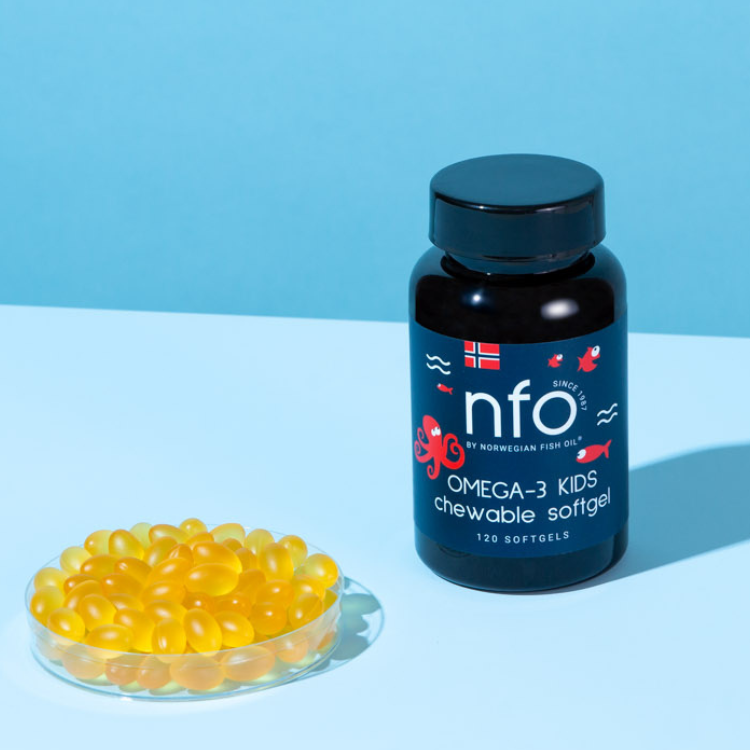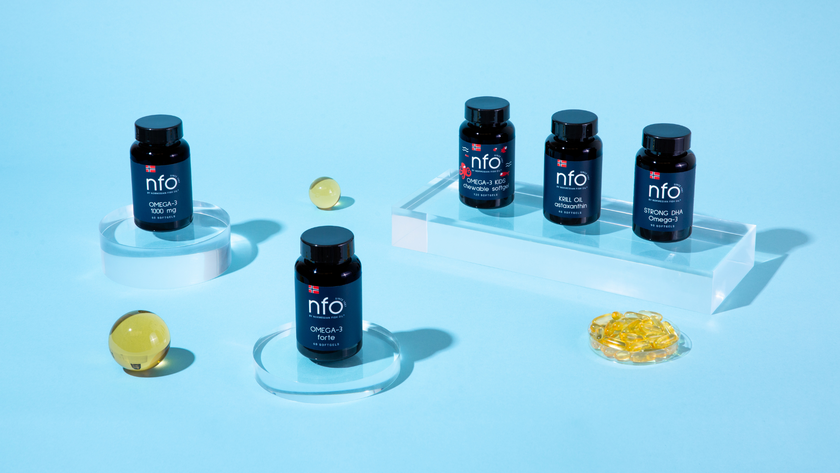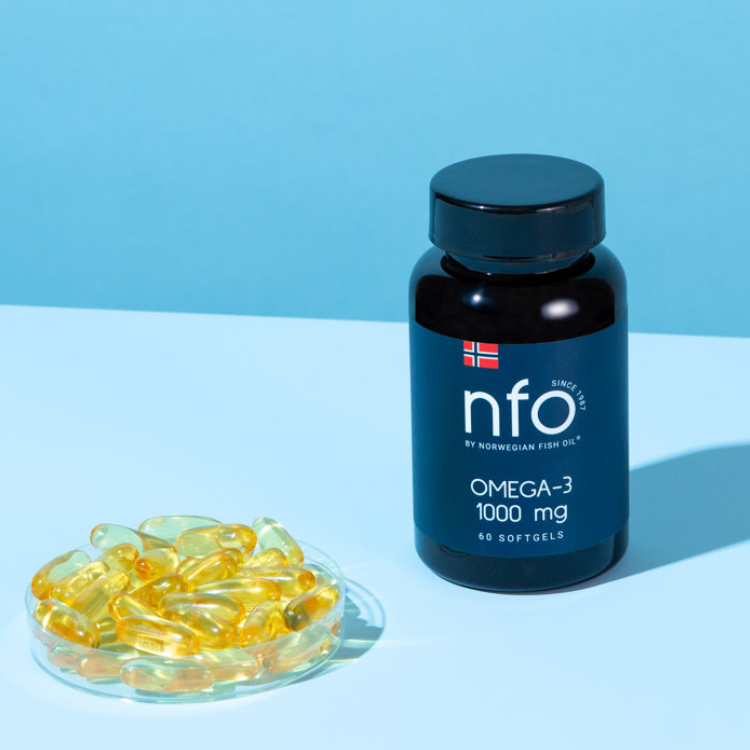فوائد زيت السلمون
صحة القلب والأوعية الدموية
من أبرز فوائد زيت السلمون تأثيره الإيجابي على صحة القلب والأوعية الدموية. أحماض أوميغا 3 الدهنية، وخاصة حمضي الإيكوسابنتاينويك (EPA) والدوكوزاهيكسانويك (DHA)، هي المكونات الرئيسية التي تجعل زيت السلمون خيارًا صحيًا للقلب. وتشير العديد من الدراسات إلى أن أحماض أوميغا 3 تساعد على خفض مستويات الدهون الثلاثية، وخفض ضغط الدم، وتقليل خطر الإصابة بأمراض القلب.
توصي جمعية القلب الأمريكية بتناول أحماض أوميغا 3 الدهنية لتقليل احتمالية الإصابة بأمراض القلب. تشير الأبحاث إلى أن أحماض أوميغا 3 تُحسّن وظيفة بطانة الأوعية الدموية وتمنع تكوّن اللويحات في الشرايين، وهو أمر بالغ الأهمية للحفاظ على تدفق دم صحي (كريس-إيثرتون وآخرون، ٢٠٠٢).
علاوة على ذلك، أظهرت دراسة أجراها كالدر (2013) أن أحماض أوميغا 3 الدهنية لها خصائص مضادة للالتهابات، مما يقلل من علامات الالتهاب المرتبطة بأمراض القلب والأوعية الدموية. ويمكن أن يؤدي انخفاض الالتهاب الجهازي إلى خفض خطر الإصابة بتصلب الشرايين وغيره من أمراض القلب (كالدر، 2013).
الوظيفة الإدراكية والصحة العقلية
يلعب زيت السلمون أيضًا دورًا حيويًا في دعم صحة الدماغ. يُعد حمض الدوكوساهيكسانويك (DHA)، وهو مُكوّن رئيسي في بنية الدماغ، ضروريًا للوظائف الإدراكية وصفاء الذهن. وقد ارتبط تناول كمية كافية من حمض الدوكوساهيكسانويك بتحسين الذاكرة وقدرات التعلم وتقليل خطر الإصابة بالأمراض العصبية التنكسية مثل الزهايمر.
في دراسة طولية، وجد يوركو-ماورو وآخرون (2010) أن تناول مكملات حمض الدوكوساهيكسانويك (DHA) يُحسّن الأداء الإدراكي لدى كبار السن المصابين بضعف إدراكي خفيف. بالإضافة إلى ذلك، أظهرت أحماض أوميغا 3 نتائج واعدة في تخفيف أعراض الاكتئاب والقلق. وكشف تحليل تلوي أجراه جروسو وآخرون (2014) أن تناول كميات أكبر من أحماض أوميغا 3 الدهنية يرتبط بانخفاض معدل الإصابة باضطرابات الاكتئاب.
تشمل الآليات الكامنة وراء هذه الفوائد قدرة أوميغا 3 على تنظيم وظائف النواقل العصبية وتقليل الالتهاب العصبي، والذي قد يؤثر على المزاج والصحة النفسية بشكل عام. تُبرز هذه النتائج أهمية المكملات الغذائية الغنية بأوميغا 3، مثل زيت السلمون، في الحفاظ على الصحة النفسية.
صحة المفاصل والحركة
صحة المفاصل مجالٌ آخر يُظهر فيه زيت السلمون فوائدَ كبيرة. تُساعد الخصائص المُضادة للالتهابات لأحماض أوميغا 3 الدهنية على تخفيف أعراض التهاب المفاصل الروماتويدي (RA) وهشاشة العظام (OA). يُعدّ الالتهاب المزمن مُساهمًا رئيسيًا في آلام المفاصل وتيبسها، ويمكن لأحماض أوميغا 3 أن تُساعد في تعديل استجابة الجسم الالتهابية.
وفقًا لدراسة نُشرت في مجلة التهاب المفاصل والروماتيزم ، كانت مكملات أوميغا 3 فعّالة في تقليل تيبس الصباح وآلام المفاصل لدى المصابين بالتهاب المفاصل الروماتويدي (جولدبيرج وكاتز، ٢٠٠٧). كما لاحظ الباحثون تحسنًا في وظيفة المفاصل بشكل عام وانخفاضًا في استخدام مضادات الالتهاب غير الستيرويدية (NSAIDs).
وبالمثل، يُمكن لزيت السلمون أن يُفيد الأشخاص الذين يُعانون من هشاشة العظام من خلال تحسين صحة الغضاريف وتقليل تدهور المفاصل. وهذا يجعل زيت السلمون إضافةً قيّمةً إلى النظام الغذائي لمن يسعون إلى الحفاظ على الحركة وتقليل الانزعاج المُصاحب لشيخوخة المفاصل.
صحة البشرة والشعر
تتجاوز فوائد زيت السلمون الصحة الداخلية لتشمل تحسين مظهر وحيوية البشرة والشعر. تساهم أحماض أوميغا 3 الدهنية في الحفاظ على رطوبة البشرة، وتقليل جفافها، وتعزيز نضارتها. كما تساعد حمضا DHA وEPA على حماية البشرة من التلف الناتج عن الأشعة فوق البنفسجية.
أظهرت الأبحاث أن أحماض أوميغا 3 تُقلل من إنتاج المركبات الالتهابية التي تُفاقم أمراض الجلد مثل الأكزيما والصدفية (بيلكينجتون وآخرون، 2011). بالإضافة إلى ذلك، تُعزز الأحماض الدهنية صحة الشعر بتغذية بصيلاته وتعزيز نموه، وتقليل تساقطه، وتحسين قوته بشكل عام.
دعم الجهاز المناعي
يمكن لزيت السلمون تعزيز وظيفة المناعة من خلال تعديل استجابات الجسم الالتهابية والمناعية. تُعزز أحماض أوميغا 3 الدهنية وظيفة خلايا الدم البيضاء وتُقلل الالتهابات المزمنة التي قد تُضعف جهاز المناعة. هذا يجعل زيت السلمون مُكملًا غذائيًا فعالًا لتعزيز القدرة على مقاومة العدوى وتحسين الصحة العامة.
أكد كالدر (2006) أن أحماض أوميغا 3 الدهنية تُحسّن وظائف الخلايا المناعية، مثل الخلايا البلعمية والخلايا التائية. ومن خلال دعم هذه الاستجابات المناعية، يُساعد زيت السلمون في الحفاظ على جهاز مناعي متوازن قادر على الاستجابة بفعالية للتهديدات.
صحة العين
حمض الدوكوساهيكسانويك (DHA)، وهو مكون أساسي في زيت السلمون، ضروري للحفاظ على صحة العين. يعتمد تركيب شبكية العين بشكل كبير على حمض الدوكوساهيكسانويك، مما يجعله ضروريًا للوظيفة البصرية. وقد ارتبط تناول حمض الدوكوساهيكسانويك بانتظام بانخفاض خطر الإصابة بالضمور البقعي المرتبط بالعمر (AMD)، وهو سبب رئيسي لفقدان البصر لدى كبار السن.
وجدت دراسة أجراها سان جيوفاني وتشو (2005) أن الأفراد الذين يتناولون كميات أكبر من أوميغا 3 كانوا أقل عرضة للإصابة بالضمور البقعي المرتبط بالعمر بشكل ملحوظ. وأكدت الدراسة على التأثيرات الوقائية لحمضي DHA وEPA في الحفاظ على سلامة الشبكية وتقليل الإجهاد التأكسدي في العينين.
دعم إدارة الوزن
يُساعد إضافة زيت السلمون إلى نظام غذائي متوازن على التحكم في الوزن. فقد ثبت أن أحماض أوميغا 3 الدهنية تُحسّن عملية الأيض وتُقلل من تخزين الدهون. كما أنها تُعزز قدرة الجسم على استخدام الدهون كمصدر للطاقة، مما يجعلها مفيدة للأفراد الذين يسعون إلى الحفاظ على وزنهم أو إنقاصه.
كشفت دراسة أجراها باكلي وهاو (2010) أن مكملات أوميغا 3 تُحسّن تكوين الجسم من خلال زيادة كتلة العضلات الهزيلة وتقليل كتلة الدهون. وكان هذا التأثير واضحًا بشكل خاص عند دمجه مع ممارسة التمارين الرياضية بانتظام، مما يُبرز الفوائد التآزرية لأوميغا 3 والنشاط البدني.
كيفية دمج زيت السلمون في نظامك الغذائي
يمكن تناول زيت السلمون بأشكال مختلفة، بما في ذلك المكملات الغذائية السائلة، والكبسولات، أو من مصادر غذائية مثل سمك السلمون الطازج. لتحقيق أقصى استفادة، يُنصح بتناول أحماض أوميغا 3 الدهنية يوميًا وفقًا لتوصيات أخصائيي الرعاية الصحية. استشيري طبيبكِ قبل البدء بأي نظام غذائي جديد، خاصةً إذا كنتِ حاملًا أو مرضعة أو تعانين من حالة طبية.
خاتمة
يقدم زيت السلمون فوائد صحية متعددة، بدءًا من دعم صحة القلب والأوعية الدموية وصولًا إلى تحسين الصحة العقلية وحركة المفاصل. كما أن محتواه الغني بأحماض أوميغا 3 الدهنية يجعله مكملًا غذائيًا لا غنى عنه لتعزيز الصحة العامة. وبفضل الأبحاث العلمية المكثفة، يواصل زيت السلمون اكتساب شهرة واسعة كعلاج طبيعي لمختلف المشاكل الصحية. وبإدراجه في روتينك اليومي، يمكنك تحسين صحتك البدنية والعقلية مع الحفاظ على نمط حياة متوازن.
مراجع
- باكلي، جيه دي، وهاو، بي آر (2010). قد تكون أحماض أوميغا 3 الدهنية المتعددة غير المشبعة طويلة السلسلة مفيدة في الحد من السمنة - مراجعة. العناصر الغذائية، 2 (12)، 1212-1230. https://www.ncbi.nlm.nih.gov/pubmed/21364848
- كالدر، ب. س. (٢٠٠٦). الأحماض الدهنية المتعددة غير المشبعة من النوع n−3، والالتهابات، والأمراض الالتهابية. المجلة الأمريكية للتغذية السريرية، ٨٣ (٦ ملحقات)، ١٥٠٥S-١٥١٩S. https://www.ncbi.nlm.nih.gov/pubmed/22254005
- كالدر، ب. س. (2013). أحماض أوميغا 3 الدهنية المتعددة غير المشبعة والعمليات الالتهابية: التغذية أم علم الأدوية؟ المجلة البريطانية لعلم الأدوية السريرية، 75 (3)، 645-662. https://www.ncbi.nlm.nih.gov/pubmed/23044824
- غروسو، ج.، جالفانو، ف.، مارفينتانو، س.، مالاجوارنيرا، م.، بوكولو، س.، دراغو، ف.، وكاراسي، ف. (2014). أحماض أوميغا 3 الدهنية والاكتئاب: الأدلة العلمية والآليات البيولوجية. الطب التأكسدي وطول العمر الخلوي، 2014 ، 313570. https://www.ncbi.nlm.nih.gov/pubmed/24391388
- كريس-إيثرتون، ب.م.، هاريس، و.س.، وأبل، ل.ج. (٢٠٠٢). استهلاك الأسماك، زيت السمك، أحماض أوميغا-٣ الدهنية، وأمراض القلب والأوعية الدموية. مجلة الدورة الدموية، ١٠٦ (٢١)، ٢٧٤٧-٢٧٥٧. https://www.ncbi.nlm.nih.gov/pubmed/21364848
- بيلكنجتون، إس إم، واتسون، آر إي، نيكولاو، أ.، وغريفيث، سي إي (2011). أحماض أوميغا 3 الدهنية المتعددة غير المشبعة: مغذيات كبرى واقية من أشعة الشمس. مجلة الأمراض الجلدية التجريبية، 20 (7)، 537-543. https://www.ncbi.nlm.nih.gov/pubmed/22254005
- سان جيوفاني، جيه بي، وتشو، إي واي (٢٠٠٥). دور أحماض أوميغا-٣ الدهنية المتعددة غير المشبعة طويلة السلسلة في صحة شبكية العين وأمراضها. التقدم في أبحاث الشبكية والعين، ٢٤ (١)، ٨٧-١٣٨. https://www.ncbi.nlm.nih.gov/pubmed/29736322
- يوركو-ماورو، ك.، مكارثي، د.، روم، د.، نيلسون، إي. بي.، ريان، إيه. إس.، بلاكويل، أ.، وسالم، ن. (2010). الآثار المفيدة لحمض الدوكوساهيكسانويك على الإدراك في حالات التدهور المعرفي المرتبط بالعمر. ألزهايمر والخرف، 6 (6)، 456-464. https://www.ncbi.nlm.nih.gov/pubmed/28900017









